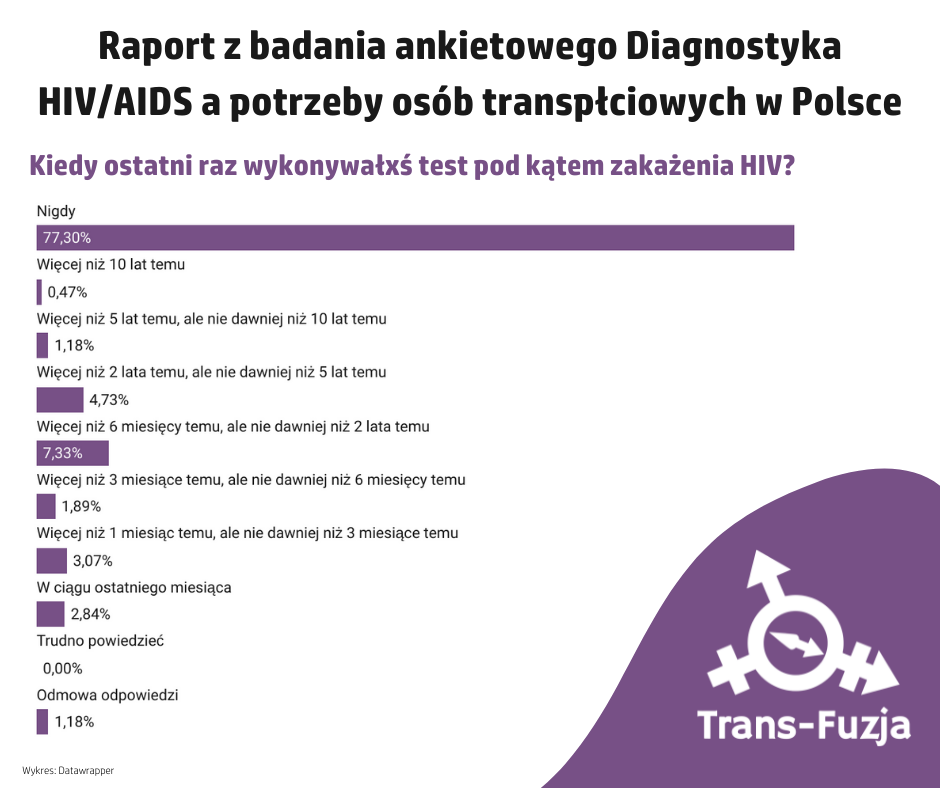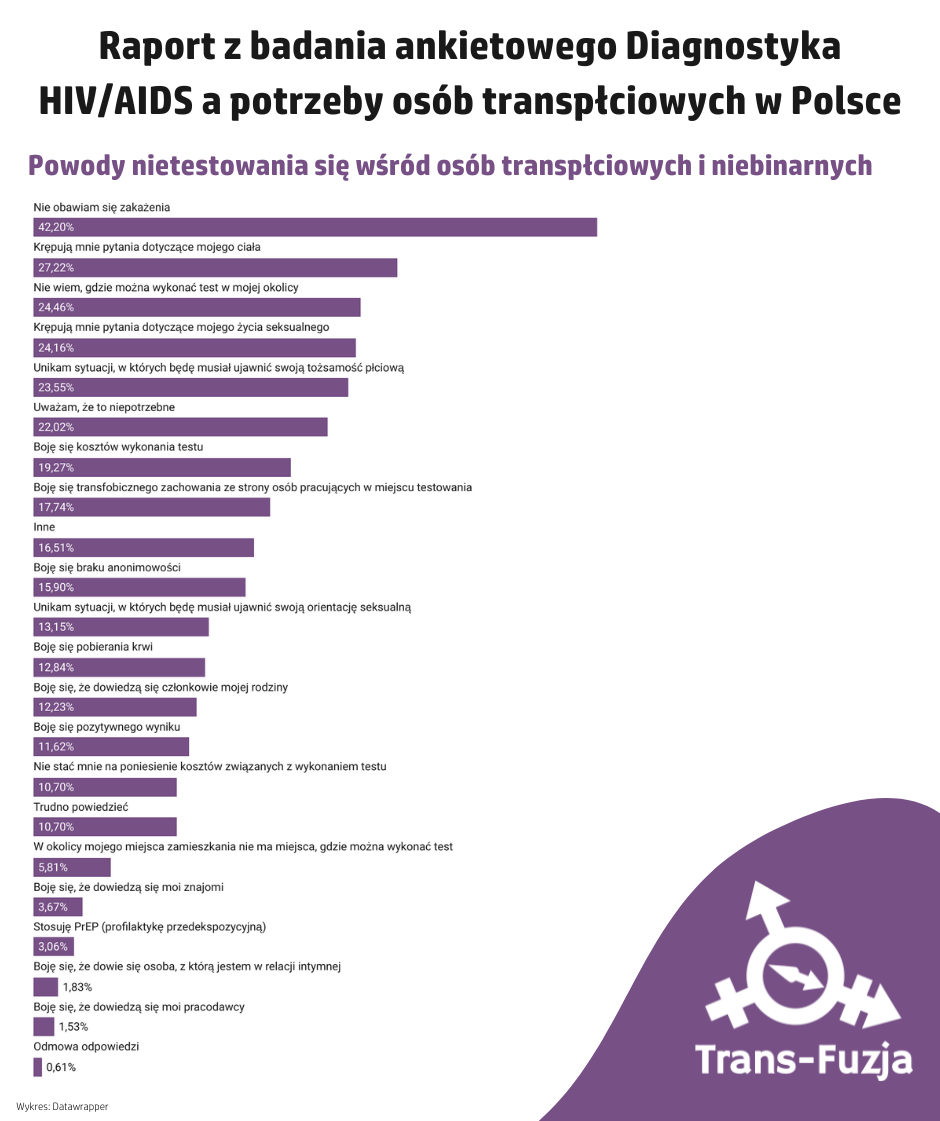The Trans-Fusion Foundation has published a report on a survey of over 400 transgender people
Warsaw, 27 September 2022. As many as 77% transgender people have never taken an HIV test, 42% are not worried about being infected with the virus, while one in seven respondents is afraid of the lack of anonymity during the test, although it is guaranteed in the nationwide network of Consultation and Diagnostic Centres - such disturbing figures, among others, can be found in the report of the Trans-Fuzja Foundation prepared on the basis of a questionnaire filled in by 423 transgender people. The survey was conducted as part of the 'Trans Positive Testing' campaign implemented with funds obtained by the Foundation in the Positively Open competition.
Those study participants who had tested for HIV in the past did so because they care about their own health (41%) and that of their partners (51%). 44% of these had tested at Consultation and Diagnostic Centres. The reasons for not getting tested are less optimistic. In almost 90% these are issues related to sexuality, psychosexual orientation and gender identity and discrimination on these grounds. Nearly 30% do not test for fear of cost, even though HIV testing at PKD is free for all. Nearly 20% fear transphobic behaviour from those working at the testing site.
These figures are significant because, according to UNAIDS, transgender people are one of the five key populations at risk of HIV infection, the reason being primarily discrimination, as well as fear of experiencing it. A report by the Trans-Fusion Foundation confirms this.
It also gives a picture of trans people's access to HIV prevention information. It shows that - as in the general population - education about this virus is very much needed. That is why trainings on HIV for trans people and professionals who work with them, as well as classes on the needs of trans people for representatives of organisations involved in HIV prevention and diagnosis, are such an important element of the 'Trans Positive Testing' campaign. A total of four such meetings have already taken place. More are planned for October.
"Our training makes it easier for trans people to visit Consultation and Diagnosis Centres. Admittedly, about half of our respondents are already satisfied with the way they are approached by health professionals, but after all, it could be even better," - says Alina Synakiewicz, co-author of the report and representative of the Trans-Fusion Foundation. - "These classes are also very valuable for people who would like to help, but don't always know what to say to transgender people or how to say it."
"This is a very interesting and important report. It would be good - which is what its authors are advocating - if people and institutions that run Consultation and Diagnostic Centres would read it and expand their information campaigns to respond even better to the needs of trans people," concluded Paweł Mierzejewski of Gilead Sciences, coordinator of the Positively Open programme.
Positively Open Competition
The Pozytywnie Otwarci (Positively Open) competition is the oldest continuously running grant project focusing on HIV education and prevention, as well as promoting knowledge about the possibilities of a normal life with the virus. The competition is open to institutions that would like to run or already run programmes in the areas of education and activation, as well as HIV/AIDS prevention and diagnosis. The partners of the Programme are the Mayor of the Capital City of Warsaw, the National AIDS Centre, the National Institute of Public Health - PZH, "Służba Zdrowia", the publishing house Termedia, and the company Gilead Sciences, which in the last ten years has allocated 2 million zlotys for grants allowing the implementation of competition projects.


